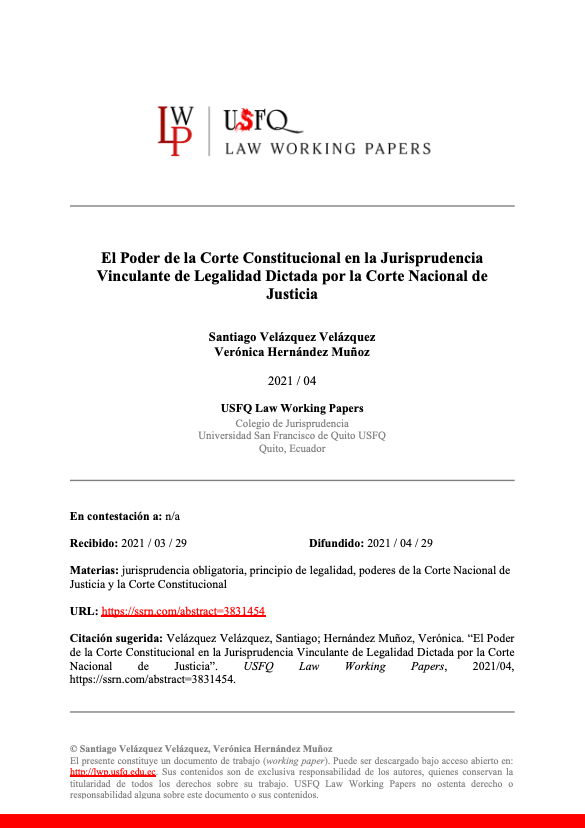The Power of the Constitutional Court on the Binding Precedents of the National Court of Justice
DOI:
https://doi.org/10.18272/usfqlwp.17Keywords:
Corte Constitucional, Corte Nacional de Justicia, precedents, binding jurisprudence, rule of lawAbstract
Verónica Hernández Muñoz and Santiago Velázquez Velázquez expose how the Constitutional Court of Ecuador, through its decisions, has modified mandatory precedents in matters of legality. The authors analyze judgments No. 1797-18-EP / 20 and 3-19-JP / 20 issued by the Constitutional Court and determine that, if rights are observed in legal precedents, the Constitutional Court would be obliged to carry out a kind of control by the principle of constitutional supremacy. However, it considers that when carrying out this control, the distinction between legality and constitutionality must be taken into account so it does not invade the field of legality. They consider that in case No. 3-19-JP / 20 —which developed criteria on the notification of pregnancy to the employer— it could be in the field of legality and that in that judgment, resolution No. 16-2016 of the National Court of Justice, which also ruled on this issue, should have been addressed. In addition, taking into account judgment 1797-18-EP / 20, the authors propose that a reform must be carried out so that the National Court of Justice does not consider, for the development of jurisprudence, sentences that have extraordinary protection actions pending against them. In turn, they call for the mandatory criteria to be taken into consideration in constitutional jurisprudence and to be developed by national judges.

Posted
License
Copyright (c) 2021 Santiago Velázquez Velázquez, Verónica Hernández Muñoz

This work is licensed under a Creative Commons Attribution-NonCommercial 4.0 International License.
